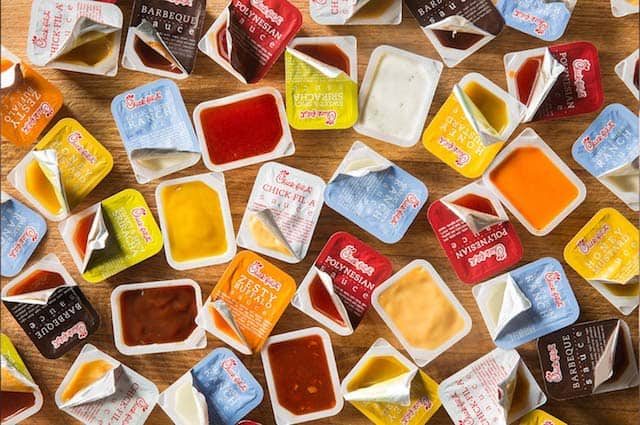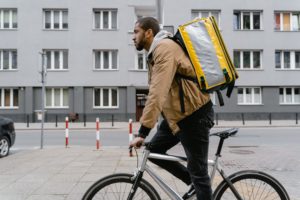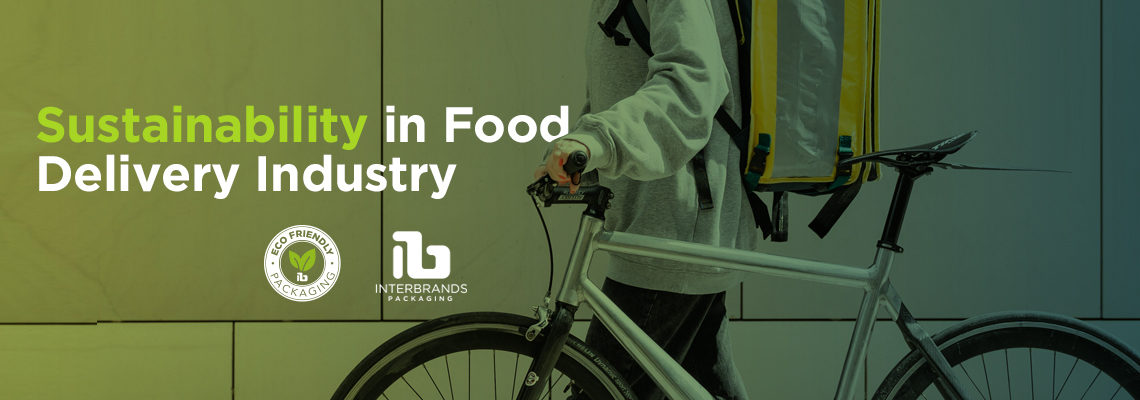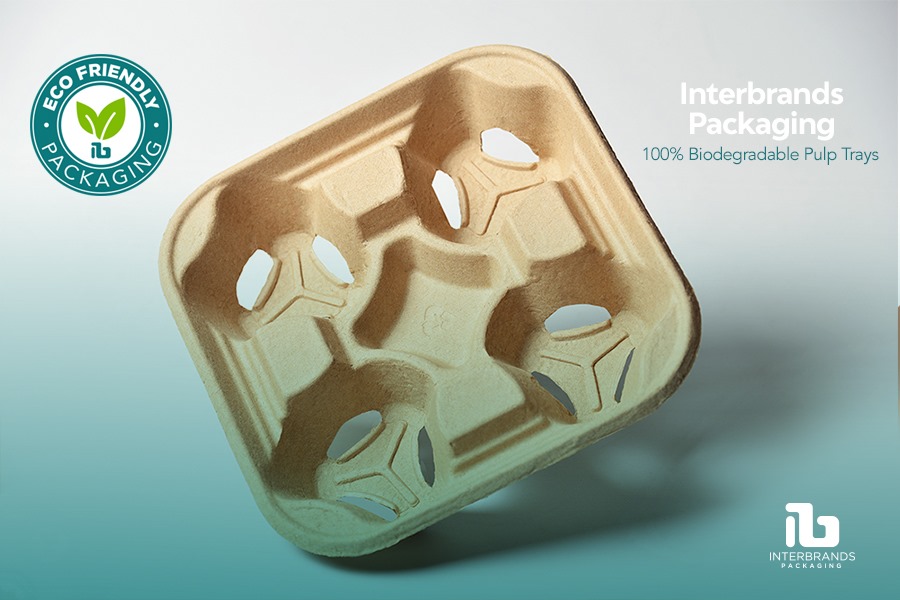During the last months, pandemic have contributed to the growth of online sales of restaurants. The convenience and the time saving are key factors for this development. At the same time, consumers have shown more consciousness about the impact of their actions on our planet. For this reason, companies have started to build new strategies for food delivery in sustainable ways.
In the last years, the food delivery business has expanded with the great success of companies like UberEats, GrubHub, DoorDash and Postmates. As food delivery has become more convenient, it has also become more common. Having many food options available to be delivered to any location you chose in as little as 30 minutes, all the while being able to order quickly from your device.

The main users are highly career-focused professionals, especially millennials, who don’t have the time for grocery shopping, preparing meals, or eating at a restaurant. These persons have found benefits such as having the ability to compare prices, delivery times, menus, and reviews from other customers in those apps.
Environmental Effects
However, with the fast growth of the food delivery industry, it’s important to analyze its environmental effects.
Single use-plastic is a substantial and wasteful component of food delivery, that affects the environment after its use. There are a lot of catsup packets and other complements that diners don’t use and then they usually waste. All these plastic items contribute considerably to the increase of pollution due to the impact they have on our ecosystems.

Also, logistics are one of the key aspects to evaluate in this industry due to the increasing demand from the customers of receiving their food in less time, with good quality and low price. For this reason, the majority of food delivery apps use a one-package-per-stop system. This method has a much greater environmental footprint than planned deliveries, which are optimized to deliver as many packages using as few drivers, motorcycles and other resources as possible.
Actions against Problem
Biodegradable products provide an answer to the issue of single-use plastic. After their useful life, ecologic products break down into compost and other organic compounds that can benefit the environment and reduce the quantity of generated garbage.
An important task for the companies is to ensure customers actually need the single-use plastics that come with their order. Some apps as Uber Eats, are reinventing their ordering service so customers have to opt-in to receive those additional items in their orders. In this way, users will have more consciousness about the essential products that they require for their food and beverage.
Also, businesses must adopt sustainable delivery logistics solutions that make the process more eco-friendly. One of these practices is the use of bicycles, electric bikes, or even drones, which improves the environmental impact of the delivery, and reduces road safety issues at the same time.
Another solution is implementing optimized routes that cover the most possible delivery points using the least amount of time and resources. The result is a delivery that is much less harmful to the environment compared with on-demand delivery.

Some companies have done some actions to promote nearby delivery among the users. For example, Uber Eats started offering free delivery during the pandemic if you order from the area the driver’s already in. It is one effective way to reduce fuel emissions.
What’s next for sustainability in the delivery food industry?
The food delivery industry will continue growing and users need to be more conscious about the environmental effects that produce its participants. In this way, diners must ask for more effective actions from restaurants and apps, related to biodegradable products and ecological logistics processes. On the other hand, businesses must respond to those requests as soon as possible. Not only as a green marketing action but a sustainable strategy to achieve their commercial goals and contribute with the care of our planet at once.

Interbrands Packaging has different biodegradable solutions as food containers, plates or cup trays that can help your business to minimize the impact their packaging has on the environment. Please contact us here or check out our social media platforms if you need more information.
Phone US: + 1 281 882 8850
Phone MX: +52 81 3402 0440
Mail: sales@interbrandspackaging.com
References
Bringg. (2020). How To Make Last Mile Logistics Sustainable. Retrieved from https://www.bringg.com/blog/last-mile/sustainable-packaging-last-mile/
Ecobnb. (January 27, 2021). Food Delivery vs. Sustainability: How Can You Contribute Today? Retrieved from https://ecobnb.com/blog/2021/01/food-delivery-sustainability-how-contribute/
Transitios2Earth. (February 25, 2020). Food Delivery – An Opportunity For Sustainability. Retrieved from https://transitions2earth.com/blogs/news/food-delivery-an-opportunity-for-sustainability


Leave a Reply